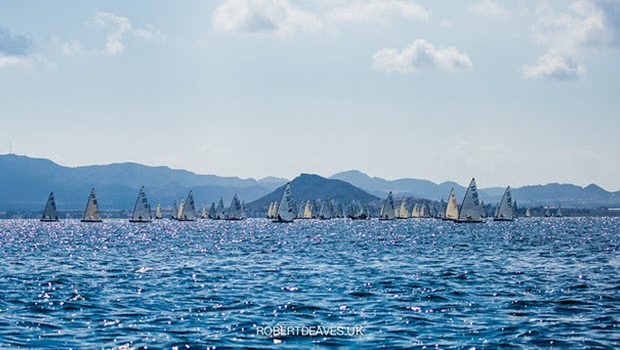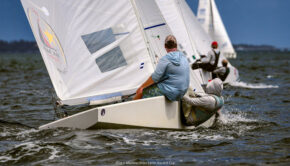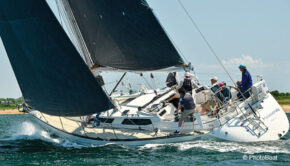Finn Class: Plotting a course forward
Published on October 27th, 2021
Any one design class whose sole focus is the Olympic Games will someday fail to exist. Since the first Olympic Games in 1896, the sport of sailing has seen 52 types of boats. Change is inevitable, and when it occurs, sailors with Olympic aspirations tend to move on from the eliminated class.
The International Finn Association (IFA) is the latest organization trying to find their way forward, having seen their structure adhere to the needs of Olympics inclusion since 1952. But when the International Olympic Committee sought change to the games, seeking equipment and events that were inclusive to both genders, the final Olympics for the Finn was Tokyo 2020.
Nearly 70 years is a long time to now need to plot a new course forward, and it is how such a change is handled which will define the future of the class. For now, two things are most likely: Olympic campaigners won’t renew their membership dues, and the used boat market is now flush with prime equipment.
Not a bad situation for an organization that anticipates over 300 boats at the 2022 Masters World Championship. Looking at the US Class, healthy growth is coming from the Masters age range of at least 40 years. A boat for bigger people, that requires no crew, has been attractive at this stage of life, yet confusion continues within the ranks.
The British Finn Association (BFA), in which its sailors have won the gold medal in six consecutive Olympic Games, is leading the conversation regarding the IFA’s plans for the Class now it is no longer Olympic. Their questions are:
• How will the IFA’s €90,000 budget now be spent?
• How will the IFA keep Olympic campaigners and U 23 sailors in the class?
• Does the IFA plan to enter a submission for the Finn to be re-selected for Los Angeles 2028?
• Why does the IFA not have a Code of Governance as required by World Sailing with a fixed term of service for officers?
Here are more observations from the BFA:
The fundamental question the Finn Class needs to ask itself is does it wish to try for Olympic re-selection or not? The Class may decide that it no longer has a place in the broadcast rights driven Olympics, particularly when sailing has given away half its medal events to board sports which are arguably not even sailing events.
Alternatively, if we think that the Finn is still the ultimate proving ground and established pathway for the world’s best sailing talent to learn their trade and then progress to top level professional sailing in America’s Cup, Sail GP, etc then we need a strategic review and agreed plan to win re-selection
The class could vote to take the first option, quite rightly saying the level of competition at the Gold Cup is actually higher and more in-depth than a 19 boat Olympic regatta, but the problem is how many competitors will there be at the next few Gold Cups, now Olympic status has been removed?
At present the BFA can’t foresee any GBR entries for next year (recently announced as being held in Malcesine in May,) and many of the Tokyo sailors now look to have full-time jobs with Sail GP and America’s Cup programmes.
So, we need some equally attractive ‘pro’ circuit that can sustain and attract the top sailors to remain or at least maintain an occasional presence in the class if we wish to try again for selection for LA 2028.
If the class does want to try for Olympic re-selection, it does then need to seriously address the gender and event equality issue, which might then require some form of changes to the boat to make it more accessible to a variety of body sizes, or join with a compatible women’s class event.
For more from the BFA, click here.









 We’ll keep your information safe.
We’ll keep your information safe.